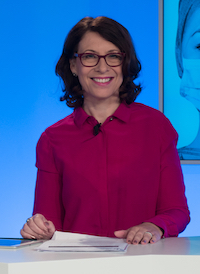
Claire Doole is a former BBC correspondent and international spokeswoman who is passionate about helping people communicate with confidence. Since 2006, she has successfully trained hundreds of professionals in the art of presenting and public speaking, talking to the media, managing communications in a crisis, and writing for the web. In addition, she has coached C-level executives and public figures to give powerful TEDx and TED style talks in Europe and the Middle East. A Swiss and UK national, Claire trains and coaches in French and English.
Claire is also a highly experienced moderator having facilitated panel discussions with government ministers, NGO activists, humanitarians and human rights specialists at major events.
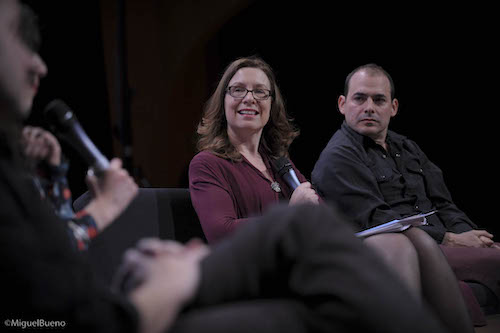
Photo: Miguel Bueno, Human Rights Film Festival
By Claire Doole, Claire Doole Communications
In everyday conversation, we often lead up to the point we want to make but when we are taking questions after a presentation, in a job or media interview then we want to do exactly the opposite!
Why is this? Because we want to be clear and concise and show with confidence we know the answer. And in a live broadcast interview, if the journalist suspects you are avoiding the question, they will interrupt and ask why you are not answering the question. So your reputation depends on getting to the point quickly.
Recently I watched some pre-recorded interviews done by CNN Money in Switzerland. As the Geneva Conventions turn 70, the programme asked whether this is a cause for celebration or concern? The reporter did 3 interviews with experts on whether the Conventions on respecting the rules of war are still relevant.
They illustrate 3 different ways of answering a question. Which one do you think is most effective?

By Claire Doole, Claire Doole Communications
As the adage goes, you don't get a second chance to make a first impression. But never has it been so true in these days of highly competitive job interviews where employers’ pre-screen candidates with a video interview.
According to the Institute of student employers, some 49% of interviewees are asked to do either a live face-to-face interview via video or one that is pre-recorded. In the latter, each candidate is given the same set of questions and timeframe to respond.
All video interviews whether for a job, a corporate video or for the TV can be nerve-wracking but the one-way video interview is particularly challenging, as you don't get any verbal or visual feedback.
Recently, a young woman came to me asking for advice on how to make a good first impression in a one-way video interview for a job she was applying for at an international organisation here in Geneva.
Here are some of the tips I gave her:
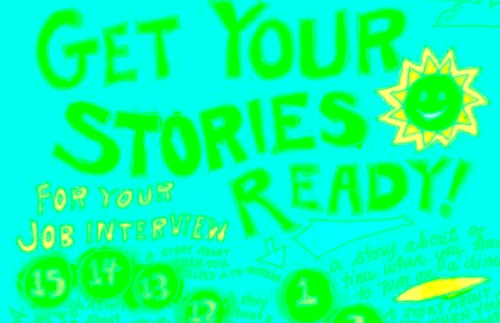
By Claire Doole, Claire Doole Communications
In presentation training, we focus on storytelling as a way of building emotional connection with the audience. Stories win hearts and minds, inspire and motivate and engage and entertain.
In a job interview, stories can be extremely effective. They will help you stand out in the interviewer's mind and highlight your key competencies.
Often, you will make a series of assertions such as I can help you increase sales, attract more funding or influence legislation. However, you will need to provide evidence for the interviewer to take you seriously. This is where stories, which are based on real-life examples, can help you come across as genuine and credible.
In my job interview coaching, we examine some typical questions, like the ones below, and apply storytelling techniques.
- Tell us about yourself.
- Why do you want to work for us?
- Why do you think you are the right person for this job?
- Tell us about a time you have succeeded/ failed.
- How do you deal with conflicts at work?
- Tell us what you don't like about your current working day?
- What sort of things do you and your boss disagree about?
- What is your greatest strength and how will it help you in this job?
- What do you see as the most challenging part of this position?

By Claire Doole, Claire Doole Communications
Every conversation is a presentation, and no conversation has higher stakes than a job interview. To succeed, you need to convince a potential employer you are the right person for the job.
Over the past year, I have been coaching people in the art of the effective job interview - with a 100% success rate so far. This is probably due to the fact that so many aspects of presenting yourself to a future employer rely on presenting and public speaking skills - my areas of expertise.
Here are some tips essential to effective presenting that can be applied to the job interview
Put your self in the shoes of the your audience
Look at every question from the employer’s perspective and do your homework. This means doing a detailed research of the company and what their needs are both today and in the future. With this information, you can explain your assessment of their challenges and opportunities and why you can help them meet them.
For example, when asked why are you interested in the job, you could reply:
"I've had twelve years in customer service positions, with four years managing the whole department. Your position clearly demands a strong service component in areas where I have expertise."
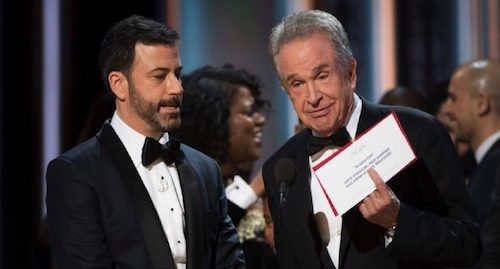
Jimmy Kimmel and Warren Beatty photo © indie.com
By Claire Doole, Claire Doole Communications
Did any of you watch the Oscars last month? The format changed with no host - part of an effort to make the ceremony shorter - due to declining viewing figures in this day and age of shorter attention spans.
Whether high profile like the Oscars or for smaller awards at smaller events - think your annual conference or end of year party - ceremonies take planning and preparation.
Believe me, I know as I advise companies and organisations and have acted as host/Master of Ceremonies at a few awards ceremonies.
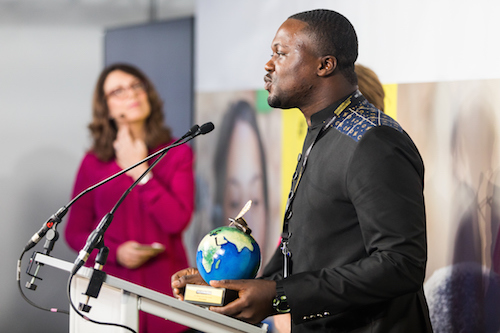
If you want to make sure your ceremony is remembered for the right reasons and not for the wrong ones - like the notorious "envelopegate" when "La La Land" was accidentally named the best picture instead of "Moonlight" at the 2017 Oscars - have a look at my tips for organisers, presenters, recipients and hosts.






